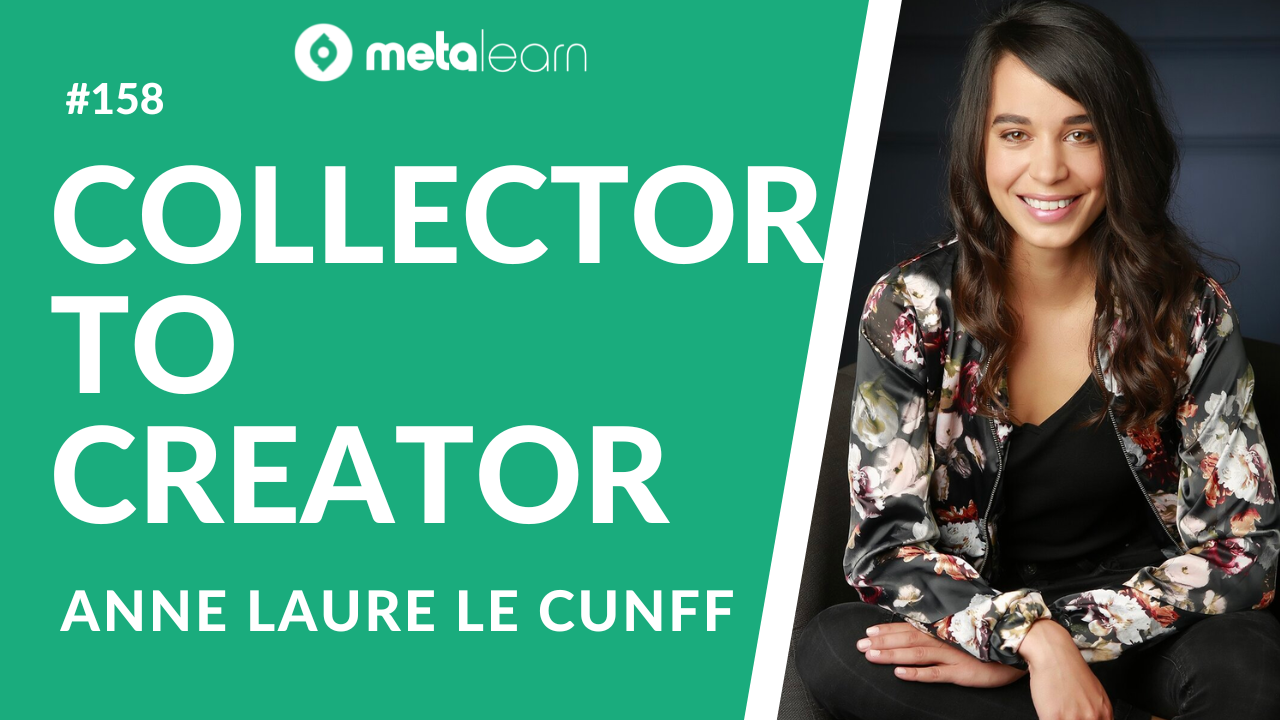ML158: Anne-Laure Le Cunff on Defining Your Values, Learning in Public and Moving from Collector to Creator
Discover how to define your personal values have changed over the course of your career, effective systems for consistently producing content online and the concept of an anti library and how it relates to metacognition.

Anne Laure Le Cunff, founder of Ness Labs, an online school and community where she produces free and paid content on mindful productivity. She's an ex-Googler, and holds a masters in Applied Neuroscience from King's College London, while her work has been featured in WIRED, Forbes, the FT and Rolling Stone.
Anne-Laure started writing on Ness Labs in 2019 and launched her Maker Mind newsletter and with a year she published over 200 articles, more than 500,000 people read her content, and 25,000 people subscribed to her weekly emails.
In this episode we discuss:
- How Anne-Laure's ambition has changed over the course of her career - from working for Google to starting her own company with Entrepreneur First and founding Ness Labs
- Anne-Laure's system for consistently producing content online and what she learned from the first cohort of her course, From Collector to Creator
- The concept of an anti library and how that relates to metacognition
This was a great conversation with one of the most interesting online creators I've come across in a while –– whether you're looking for some creative inspiration or techniques on publishing more, this episode has you covered.
Show Notes
- Introducing Anne-Laure Le Cunff [00:34]
- Why was school constraining for the younger Anne-Laure? [02:19]
- How did Anne-Laure learn what her greatest skills are? Why didn’t she excel in mathematics despite being good at it? [03:17]
- Anne-Laure shares how learning on your own terms can lead to a more educational experience. [06:04]
- What does Alvin Toffler’s quote about the illiterate of the 21st century mean to Anne-Laure? How does she apply Toffler’s quote to her life and to learning process? [07:03]
- How did Anne-Laure figure out that going back to university to study neuroscience was the path she should take after working at different startups and a big company like Google? [08:29]
- What are the requirements of learning? How does one develop their learning process to better understand their chosen fields? [12:34]
Anne-Laure shares the merits of online learning, traditional learning, and the advantage of utilising both. [13:58] - How has Anne-Laure’s ambition, and her perception of it, changed over the last few years working at different successful companies? [15:41]
- What are the differences between terminal values and instrumental values? What is the shift in perspective that comes when you distinguish between the two? [19:34]
- With an audience of 500,000, how does Anne-Laure make sense of the large community that she has built? What is her secret behind putting out content that people actually want to consume? [21:45]
- What are practical habits that people can implement in their own lives to improve their process and goals? What is a common mistake that people commit when pursuing a project? [22:56]
- What are the challenges that Anne-Laure faces when working in public, especially when there is an increasingly large audience that sees her mistakes? [27:54]
- How does publicizing your thoughts help your learning process? [31:41]
- Anne-Laure explains the idea of an anti-library and the beauty in having unread books in your space. [34:34]
- What is Anne-Laure’s preferred medium for reading? [36:10]
- What are some hindrances that people experience when making the transition from collector to creator? [38:40]
- Anne-Laure weighs in on the advantages of cohort-based courses and why self-paced courses tend to have lower completion rates. [41:24]
- Why did Anne-Laure start writing down her dreams and sharing them? How can you learn things about yourself from your dreams? [43:06]
- Closing statements [45:17]
Resources
Follow Anne-Laure online
Twitter | Website | Newsletter
- Building an Antilibrary: The Power of Unread Books - Anne-Laure Le Cunff
- From Collector to Creator - Anne-Laure Le Cunff
- Learning How to Learn - Anne-Laure Le Cunff

